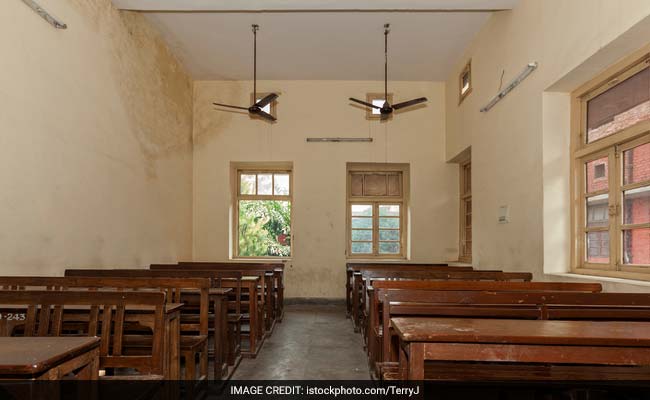"Why Teach About Riots": NCERT Chief Amid Row Over Babri Whitewash In Books
Hatred and violence are not subjects of education and school textbooks should not focus on them, the chief of the country's top education body NCERT has said amid a row over the latest tweaks in its books.

Hatred and violence are not subjects of education and school textbooks should not focus on them, the chief of the country's top education body NCERT has said amid a row over the latest tweaks in its books. The tweaks include removal of references to Babri Masjid demolition and the BJP's Ram Rath Yatra led by its veteran leader Lal Krishna Advani.
The curriculum prepared by NCERT is followed by nearly 30,000 schools affiliated to Central Board of Secondary Education (CBSE).
In an interview to news agency PTI, NCERT director Dinesh Prasad Saklani rejected accusations of saffronisation of the school curriculum and said the tweaks in textbooks are part of an annual revision.
Asked why references to the Babri masjid demolition or communal violence in its wake were removed, Mr Saklani replied, "Why should we teach about riots in school textbooks? We want to create positive citizens, not violent and depressed individuals".
"Should we teach our students in a manner that they become offensive, create hatred in society or become victim of hatred? Is that education's purpose? Should we teach about riots to such young children... when they grow up, they can learn about it, but why school textbooks. Let them understand what happened and why it happened when they grow up. The hue and cry about the changes is irrelevant," he added.
The new political science textbook for Class 12 describes Ayodhya's Babri Masjid, which was demolished on December 6,1992, as a "three-domed structure" and focuses on the Supreme Court judgment that paved the way for the construction of the Ram temple.
"If Supreme Court has given a verdict in favour of Ram temple, Babri masjid or Ram janmabhoomi, should it not be included in our textbooks, what is the problem in that? We have included the new updates. If we have constructed new Parliament, should our students not know about it? It is our duty to include the ancient developments and recent developments," he said.
Responding to allegations of saffronisation, Mr Saklani said, "If something has become irrelevant, it will have to be changed. Why shouldn't it be changed? I don't see any saffronisation here. We teach history so that students know about facts, not for making it a battleground".
The NCERT chief also questioned how teaching about the Indian knowledge system amounted to saffronisation. "If we are telling about iron pillar in Mehrauli and saying Indians were way ahead of any metallurgical scientist, are we wrong? How can it be saffronisation?" he asked.
The 61-year-old has earlier headed the ancient history department at Hemvati Nandan Bahuguna Garhwal University before he took charge of NCERT in 2022.
Updating textbooks, he said, was a global practice and in the interest of education. "Whatever is changed is decided by subject and pedagogy experts. I do not dictate or interfere in the process. There is no imposition from the top," he said.
This is the fourth round of revision of NCERT textbooks since 2014.






















